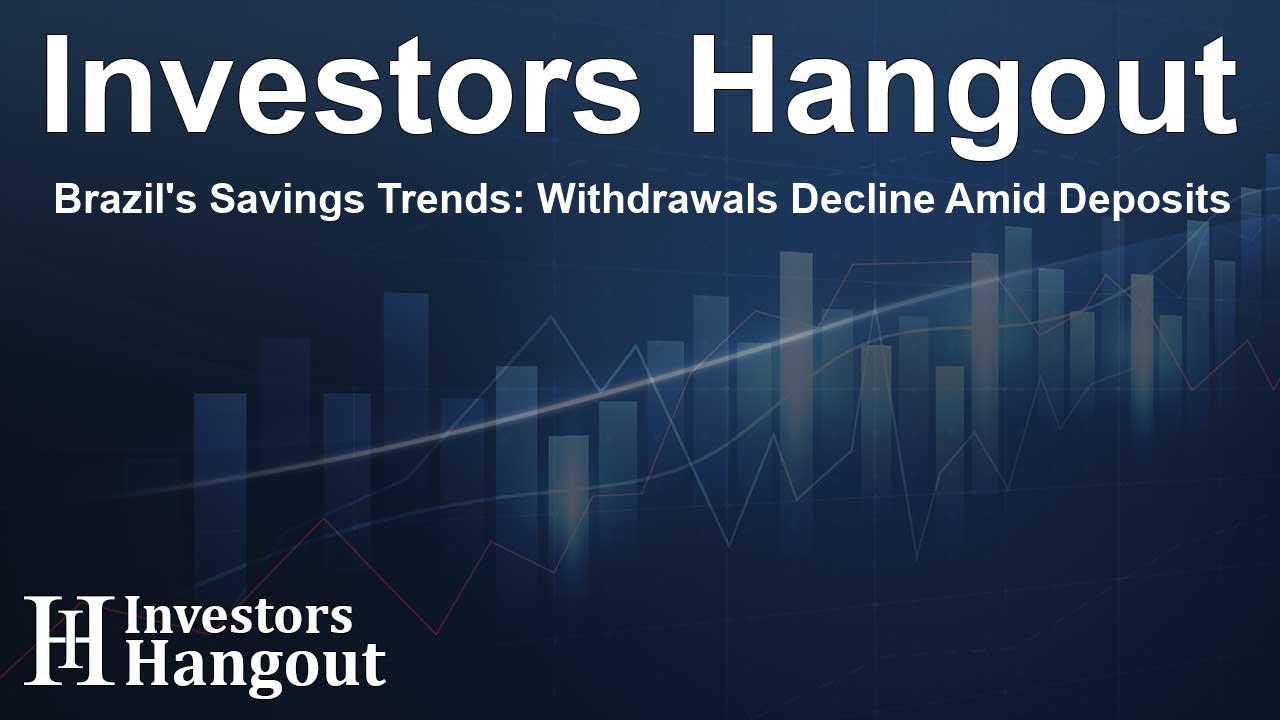Brazil's Savings Trends: Withdrawals Decline Amid Deposits

Understanding Brazil's Savings Withdrawal Trends
In recent times, Brazil has seen a notable trend where savings withdrawals have outpaced deposits, marking the fourth consecutive year of this occurrence. The data released by the central bank sheds light on the economic behavior of Brazilians, especially during the challenging financial climate.
What the Numbers Reveal
The financial figures for 2024 show that net withdrawals reached a staggering 15.5 billion reais, which is roughly equivalent to $2.5 billion. This figure, while still concerning, represents a significant decrease compared to the previous years. To put it in perspective, in 2023 net withdrawals were as high as 87.8 billion reais, with even larger sums of 103.2 billion in 2022 and 35.5 billion in 2021.
The December Effect
December usually heralds a favorable time for savings, traditionally seeing an influx of deposits. However, the latest data indicates that December 2024 recorded a mere net inflow of 4.9 billion reais, which stands as the smallest December influx since 2015. This sharp decline raises questions about consumer confidence and saving habits during what is typically a festive season.
The Role of Savings Accounts in the Economy
Savings accounts play an essential role in Brazil's financial landscape, serving as a crucial source of funding for real estate credits. As withdrawal patterns change, it’s evident that many are opting for alternative investments, spurred by fluctuating interest rates. The central bank has indicated that it may explore adjustments to the remuneration of savings accounts to address this shift.
Impact of Interest Rates
The interest rate landscape in Brazil is another critical factor influencing savings behavior. By the end of 2024, Brazil's benchmark interest rate stood at 12.25%, having increased from 11.75% at the beginning of the year. This tightening of borrowing costs aims to combat inflationary pressures, which have been heightened by vigorous economic activity and a depreciating currency. As a result, many investors are shifting their focus towards fixed-income investments that seem more appealing in the current climate.
Looking Forward
As we look to the future, the challenge for Brazilians will be finding a balance between saving and spending. With economic conditions continuously changing and interest rates fluctuating, it will be vital for the central bank to monitor these trends closely. The global economic climate further complicates these dynamics, as external influences can significantly impact local financial behavior.
Financial Resilience
To cultivate financial resilience among the population, educational initiatives focusing on savings and investments are crucial. Encouraging a saving culture, especially among younger generations, will play a pivotal role in stabilizing future economic growth and ensuring a robust financial foundation for many.
Frequently Asked Questions
What caused the increase in withdrawals from savings accounts in Brazil?
Several factors, including rising interest rates and consumer confidence issues, led to increased withdrawals as people sought more attractive investment options.
How have interest rates affected Brazilian savings behavior?
Higher interest rates tend to make fixed-income investments more attractive, prompting some savers to withdraw their funds from savings accounts.
What is the significance of December's savings data?
December usually shows positive savings trends, but the recent data indicates a notable decline, sparking concerns about consumer behavior during a typically festive time.
What steps is the central bank taking to address savings withdrawal trends?
The central bank may consider adjusting the remuneration of savings accounts to encourage more deposits and stabilize the savings market.
How can Brazilians improve their saving habits?
Financial education and awareness programs can help encourage a stronger saving culture among Brazilians, particularly the youth, to build a more financially secure future.
About Investors Hangout
Investors Hangout is a leading online stock forum for financial discussion and learning, offering a wide range of free tools and resources. It draws in traders of all levels, who exchange market knowledge, investigate trading tactics, and keep an eye on industry developments in real time. Featuring financial articles, stock message boards, quotes, charts, company profiles, and live news updates. Through cooperative learning and a wealth of informational resources, it helps users from novices creating their first portfolios to experts honing their techniques. Join Investors Hangout today: https://investorshangout.com/
Disclaimer: The content of this article is solely for general informational purposes only; it does not represent legal, financial, or investment advice. Investors Hangout does not offer financial advice; the author is not a licensed financial advisor. Consult a qualified advisor before making any financial or investment decisions based on this article. The author's interpretation of publicly available data shapes the opinions presented here; as a result, they should not be taken as advice to purchase, sell, or hold any securities mentioned or any other investments. The author does not guarantee the accuracy, completeness, or timeliness of any material, providing it "as is." Information and market conditions may change; past performance is not indicative of future outcomes. If any of the material offered here is inaccurate, please contact us for corrections.